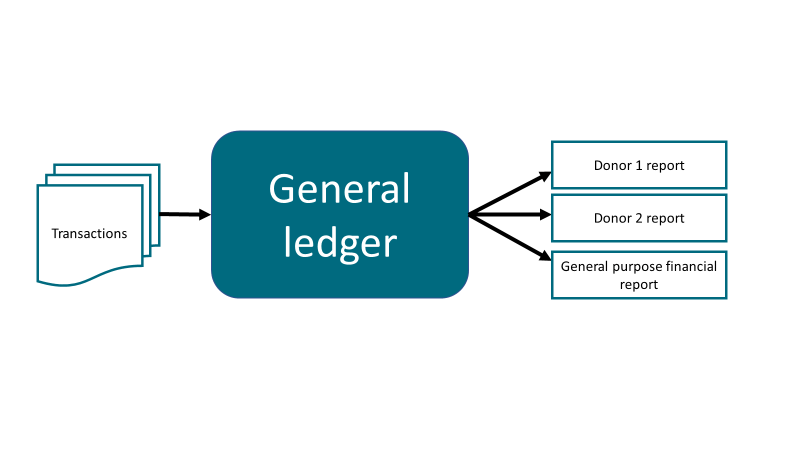
An accountant friend of mine in Uganda recently shared her struggle with me, “You learn all your accounting theory and qualify as ACCA or CPA, but then, being an accountant for a non-profit, it’s as if you have to ignore everything you’ve learnt!”
The reality for many non-profit-organisations (NPOs) is that donors are the most influential users of their financial reports. In order to receive the next tranche of funding, many NPOs are required to submit regular financial reports, in the format required by each donor.
Donor reporting requirements and formats vary, with some being more prescriptive than others. Donor requirements also often diverge from the accounting principles that accountants study as part of their professional training. Professional accounting exams are based on the accounting standards adopted in their country and are usually related to International Financial Reporting Standards (IFRS).
There are valid reasons why donor requirements may differ from accounting standards:

Well-resourced organisations can invest in sophisticated accounting packages with multi-dimensional coding functions, which can produce reports with different expenditure classifications, in different currencies, and on both cash and accrual bases. But an accounting package alone isn’t enough; organisations also need appropriately skilled finance staff, robust governance structures to oversee those staff, and the necessary IT infrastructure.
Smaller local organisations, which are the focus of the 2015 Grand Bargain localisation commitments, and which do the lion’s share of social sector implementation and delivery, typically lack the resources to invest in such a sophisticated accounting system. This is in part because they are predominantly donor funded, yet the finance function is perceived by many donors as an ‘overhead’ that is incorrectly associated with phrases like: ‘inefficient’, ‘unnecessary’ and ‘taking money away from front line service delivery’.
Since it is difficult, and in some cases, impossible for organisations to simultaneously meet the requirements of both donors and IFRS, many NPOs are effectively caught between two forces outside their control. Some organisations structure their accounting systems to meet IFRS type reporting needs, only to spend hours separately re-analysing project transactions in spreadsheets. Others structure their accounting systems to meet donor needs, but then struggle to produce meaningful whole-organisation financial reports.
This presents us with a quandary at the IFR4NPO project, where we are developing Internationally applicable Financial Reporting guidance for Non-Profit-Organisations. Our goal is to produce specific guidance for the non-profit sector that is based on international accounting standards.
This axis of debate, around donor requirements vs. a principle-based approach, proved to be a recurring theme at the a Practitioner Advisory Group meeting, which held in December 2019, in Nairobi, Kenya.
Arguments for a principle-based approach include:
Arguments for accommodating donor requirements include:
Resolving this dilemma may be the single biggest challenge facing the IFR4NPO initiative. The project offers, for the first time, an opportunity for the donor and accounting standard communities to do some intense listening, reflection and consultation.
It was no one’s intention for NPOs to be stuck in the middle, effectively pulled in different directions by conflicting reporting requirements. So let’s create an environment where NPOs can instead focus on their urgent missions to make the world a better place.
It’s imperative that we find a meaningful solution, because, as the saying goes: ‘When the elephants fight, it is the grass that suffers’.
The IFR4NPO project launched in July 2019. It is an initiative of Humentum and the Chartered Institute of Public Finance and Accountancy (CIPFA) to develop internationally applicable financial reporting guidance for non profit organisations by 2024. www.ifr4npo.org | info@ifr4npo.org